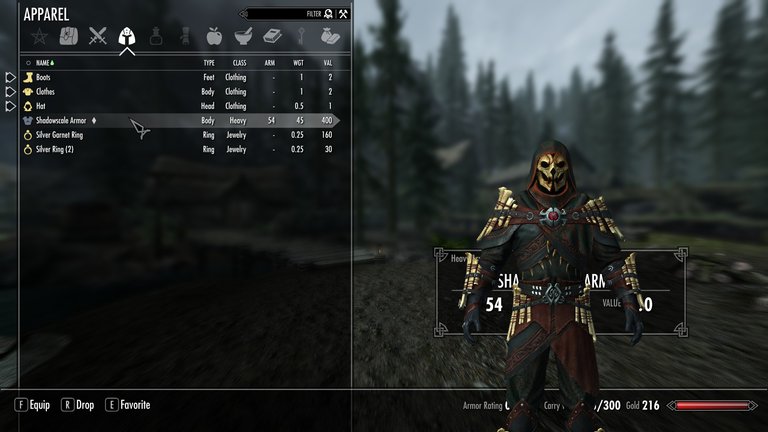
Compensate the creators' quality work, a good idea but is it really that simple?
No and it's been tried before. Bethesda resurrects the idea with Creator's Club announced this year at E3. In it's first iteration on Steam Workshop, there were many proponents of paid mods with their dreams of earnings, but often I found the pursuits and reasonings to be short sighted. Briefly, what could, in part has, gone wrong detailed below.
Steam Workshop's Paid Mods and Original Controversy
The idea was first experimented with on Steam, April 23rd of 2015, introduced by both Bethesda and Valve, to introduce the concept of micropayments for select Skyrim mods. In just a few days, the concept caused an outrage from both general Steam users and players of the game Elder Scrolls V: Skyrim. An outrage severe enough that involved Valve's hand in suppressing some Steam users, but eventually discontinuing paid mods.
At first, many can point out an unfairness in the policy regarding paid mods. To quote:
Therefore, we may hold your payment until a minimum of $100 payout is earned.
thus means in order to be paid, the mod must have $400 worth of transactions. The funds are held indefinitely until the threshhold is met. The rest of the revenue goes to both Valve and Bethesda. It's easy to remark the actual creator of the work deserves more, and this may be the most accessible flaw regarding the policy, but it goes far deeper concerning both the monetization of mods and the very nature of mods.
Precedence for decline in quality
As observed in late 2000s PC gaming, most of the market forces were focused on console gaming whilst PC gaming received poor quality game ports, or so it was heavily publicized. It was then in lucky cases, a modder fixed the game yielding better performance and playability, e.g Durante's Dark Souls: Prepare to Die Edition fix for the PC. Supposedly a real market arose for paid mods, we can see the game companies slacken their development and release a poorly performing or even designed game, and have the modders create the fixe, yet take a portion of the revenue from the sales of such fixes. A dismal hypothetical situation, but one that has already happened- SkyUI mod, a mod that tailors the graphical user interface for mouse and keyboard, since the original Skyrim does not do so, was one of the first mods available for sale on the Steam Workshop.
(Lack of) Quality Assurance
Mods are largely works created on a hobbyist's time, and are very different in nature from an officially released DLC. For the latter, one can expect some levels of Q&A and testing before being released, the former, not so much. Mods have been a common perk of PC gaming, but for the people who aren't aware, mods aren't very robust. Mods will break, will crash the game, will work in some strange contexts, and may no longer be working after a patch to the game, depending on the nature- whether it's a hack written from reverse engineered data (breaking on new binary executable), game scripts (breaking on scripting engine updates), or just a simple cosmetic model. Sometimes mods are not compatible with each other, the combination of such is impossible.
Suppose mods were for sale, cents and dollars at a time like microtransactions and DLC, the customer would be purchasing exactly that, but without the same level of quality assurance as one would expect.


Dependencies, Modding Community and Financial Mess
Mods have been freely distributed works of passion from the modding community as a contribution to the game and community. One modder learns from another and maybe uses some aspects of such e.g Art of the Catch, a fishing related mod that depends on another mod for animations. Were paid mods to establish itself, there is now incentive to keep trade secrets as each modder is a financial competitor to another.
Pros and Cons
This is my assessment of paid mods, the pros and cons, given the model that was presented in 2015. Some of these were issues raised during Steam Workshop's paid mods and Skyrim's modding community.
Users
- (+) Better supported mods now that there is incentive for development
- (-) Paying for game fixes and essentially game patches
- (-) No quality assurance for purchased mods
- (-) Pop-up advertisements in free versions of mods
- (-) Less choice as paid content takes over free content (from Steam Workshop, anyone was able to upload mods regardless of rights to it)
Modders
- (-) Lesser income and work opportunities.
- It used to be that modders were given jobs by game companies, given that the portfolio was impressive, e.g the foundings of Valve Software.
- (-) Less community now that each content creator is a competitor.
- (-) New legal implications regarding mods and dependencies, leading to lesser capability of creating mods.
- (-) Companies, or other people have incentive to take one's work and sell it regardless if it was intended to be released freely. (from Steam Workshop)
- (+) Short-term or passive profit after release of a mod
Game Companies
- (+) Lesser work needed for software development now that modder(s) will instead address and fix issues for cents on a dollar (price range is from Steam Workshop), if not already competing with each other on that front.
- (+) Additional income from modders, (considered self-employed contractors, Steam Workshop terms)
The story of Steam's Paid Mods ended with its withdrawal, but the takeaway from the negative feedback was the introduction of the idea to an existing mod community. As indicated, it would be tried again for a game without a years old established community.
In 2017, it seems the concept has sprung up again in the form of Creator's Club where there will be a platform for mod distribution accessible in-game and purchasable with some form of credits. Additionally, the attempt again involves Skyrim. Although this blog post is negative regarding the concept, the concern is the overall consequences are often not realized when many are thinking about a potential profit. It seems that some lessons have been learned regarding the original attempt as this time around. According to the FAQ, there will be a curation and application process with the requirement for original content, largely presenting itself as a small co-operative development program with Bethesda having oversight. Still, it seems many are apprehensive to the idea considering both the past failure, and previously innocuous ideas the game software development tried then solidly adopted have become now-realized regrets difficult to uproot. The public response on YouTube for the E3 announcement video is an overwhelming disapproval.

Congratulations @spectre! You have received a personal award!
Click on the badge to view your Board of Honor.
Congratulations @spectre! You received a personal award!
You can view your badges on your Steem Board and compare to others on the Steem Ranking
Vote for @Steemitboard as a witness to get one more award and increased upvotes!